A successful blog is a website that ranks high for niche-specific topics in search engines.
The website visitors that originate from search engines are called organic traffic. The benefit of organic traffic is that you can get visitors for months or even years without doing anything.
But it takes a long time and strategic work to get to the top of the search results.
Today, I’ll teach you how to get organic traffic to your blog.
How to Get Organic Traffic
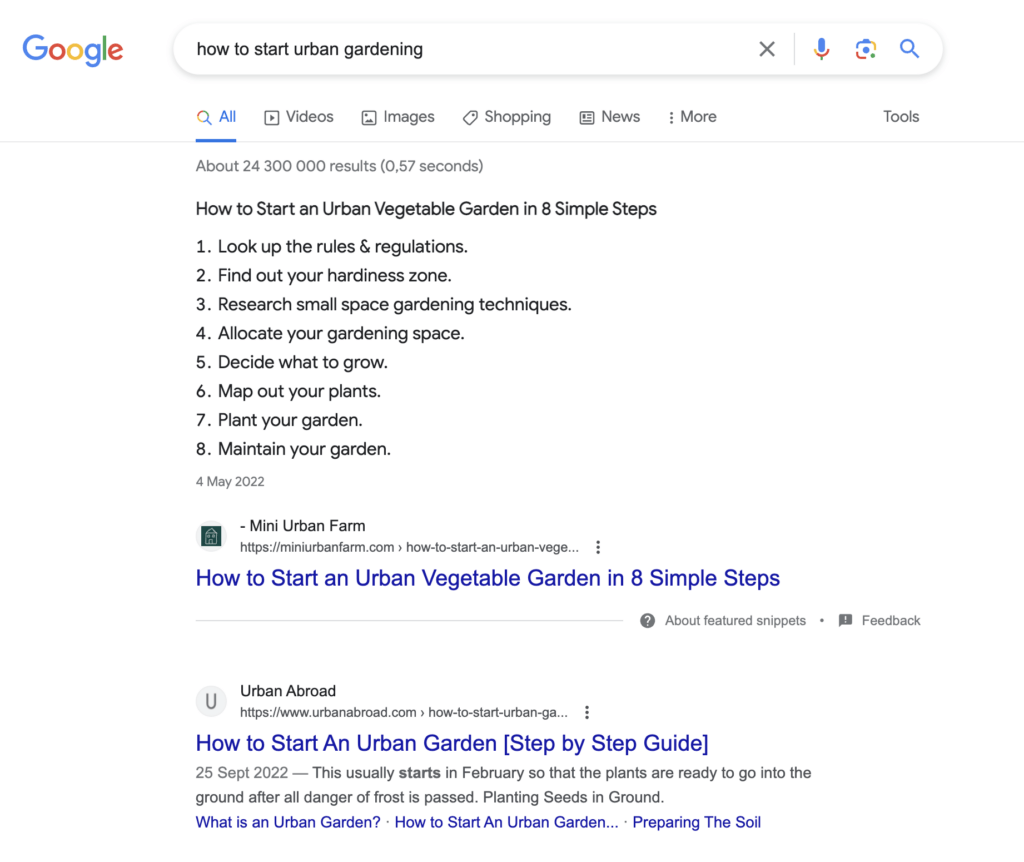
To put it short, you need to do some simple research before writing a single post.
Don’t worry. You don’t need any paid tools or technical knowledge to pull this off.
Instead, we’re going to use Google and common sense.

Your goal is not to write about things you want, but rather things that your audience needs.
You need to provide value and solve problems.
- A bad blog post topic is like this: “I had a dream last night”.
- A good post solves problems, such as “How to write a blog post”.
That’s important to realize.
People don’t really care about your random stories. Instead, they want to find someone who can solve their problems and who they can trust.
This is how you do it.
#1 Research for Topics People Search
Use Google suggestions to see what people search.
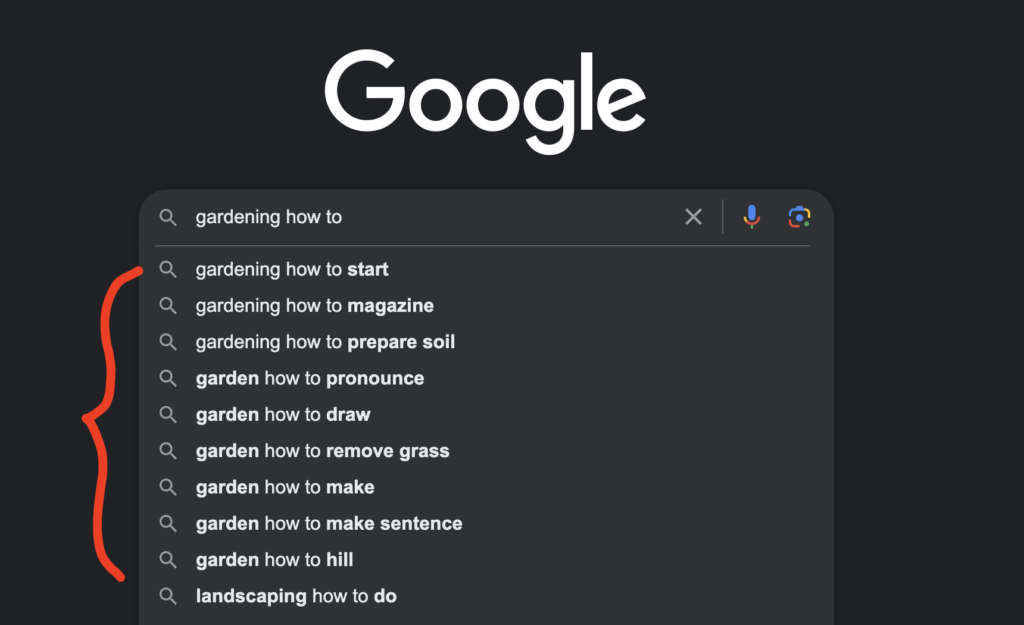
Just type in something related to your niche and see what the suggestions say.
If you didn’t already guess, these suggestions are good blog post topic candidates.
How cool is that? This data is 100% free and gives you a really good idea of what people are searching for.
But notice that not all these topics are worth writing about.
Some of those topics could be more competitive.
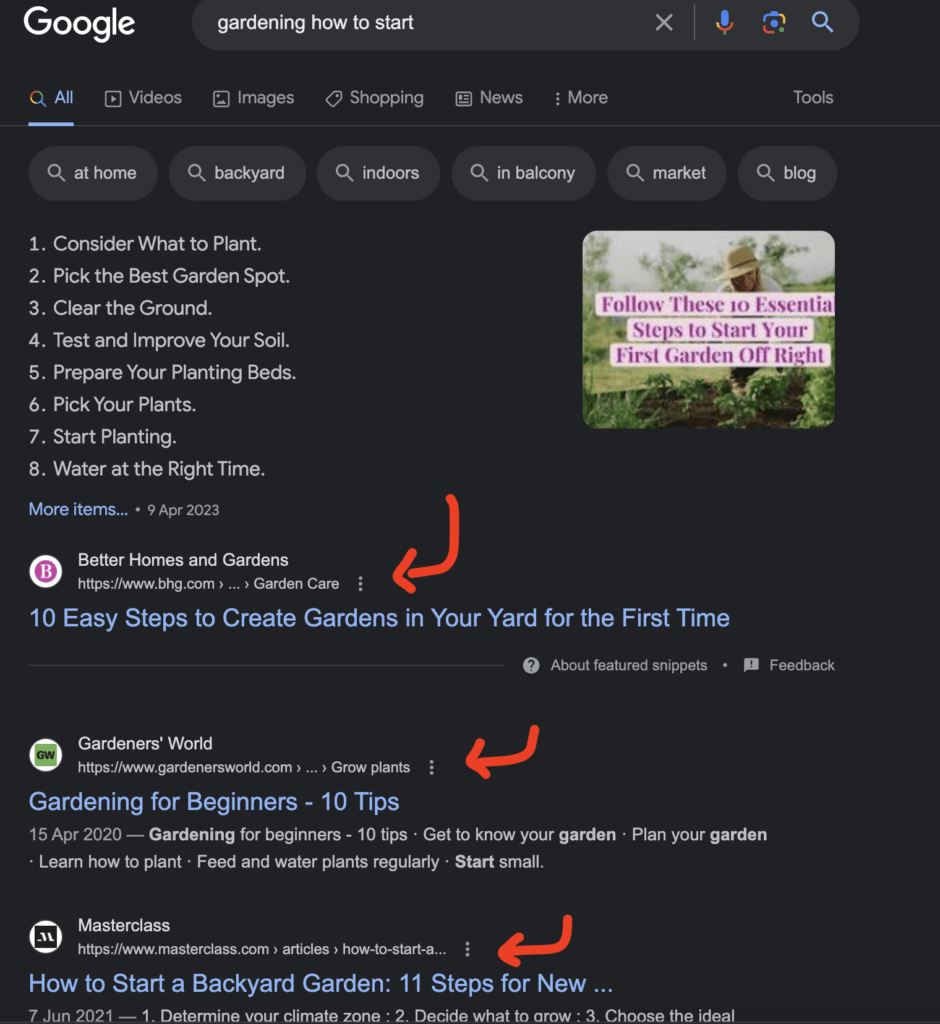
Some topics might have a different search intent, such as seeing a video instead of a blog post.
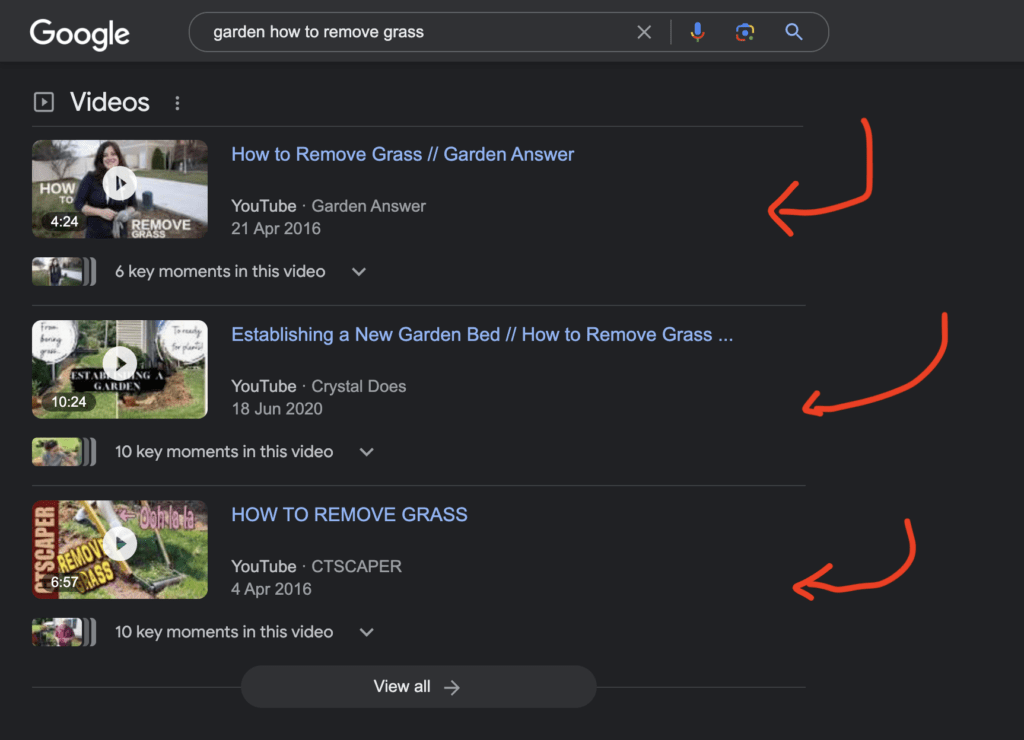
More about search intent later on in this guide.
#2 Think Long Term
And then there is AI.
These days AI (such as ChatGPT) can write terrific answers to some search questions — even better ones than professional writers.
More importantly, AI can answer specific questions pretty well.
You need to take this into account when writing blog posts.
Think about commodity content, such as “What Is a Cat”.
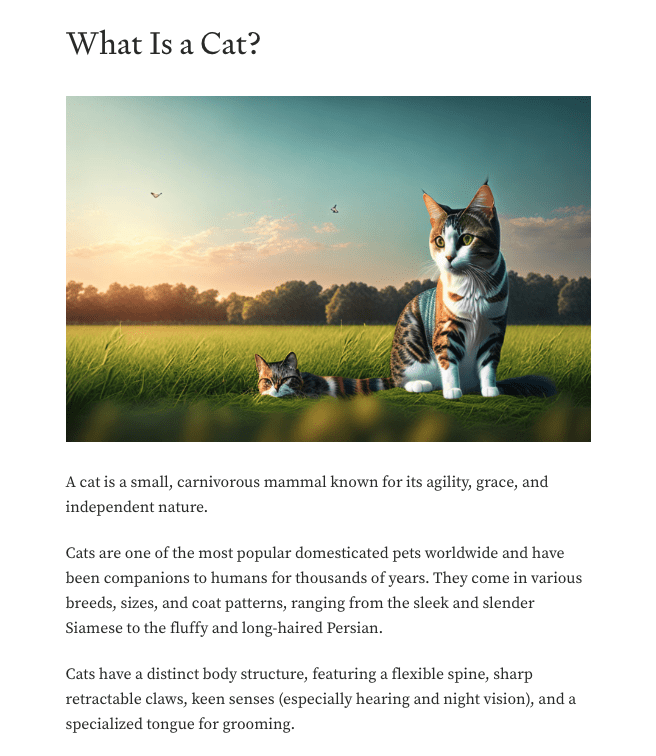
It’s super easy to write a comprehensive post about this topic in seconds with AI. Also, the AI can generate images of cats with no problem.
Handwriting a blog post for this kind of competitive and AI-friendly topic makes no sense. Anyone can do it in seconds. You would never rank high for a topic like this.
But on the other hand, there are topics that need a human take. No matter how good an AI is, people will still want to read other people’s opinions.
Consider something like “Photoshop review”.
For sure, you could generate a blog post with AI that reviews Photoshop.
But that’s a bad idea because you’re not adding anything new to the web.
When someone reads a review like this, they expect opinions from people who have actually used the tool.
So whenever you consider writing a post, think about this: Can I add something new to the table with this post? Or is it rather something that’s been repeated millions of times on the internet and the AI could easily do?
#3 Check the Competition
Once you have identified prominent blog post topics, you need to make sure that the competition isn’t too much either.
If there are thousands of blogs writing about the same topic, your chances for success are slim to none.
Luckily, doing this research is quite simple. Just Google your topic to see what pops up.
If there are tons of similar results, ads, search features, and such, that might mean the topic is too crowded.
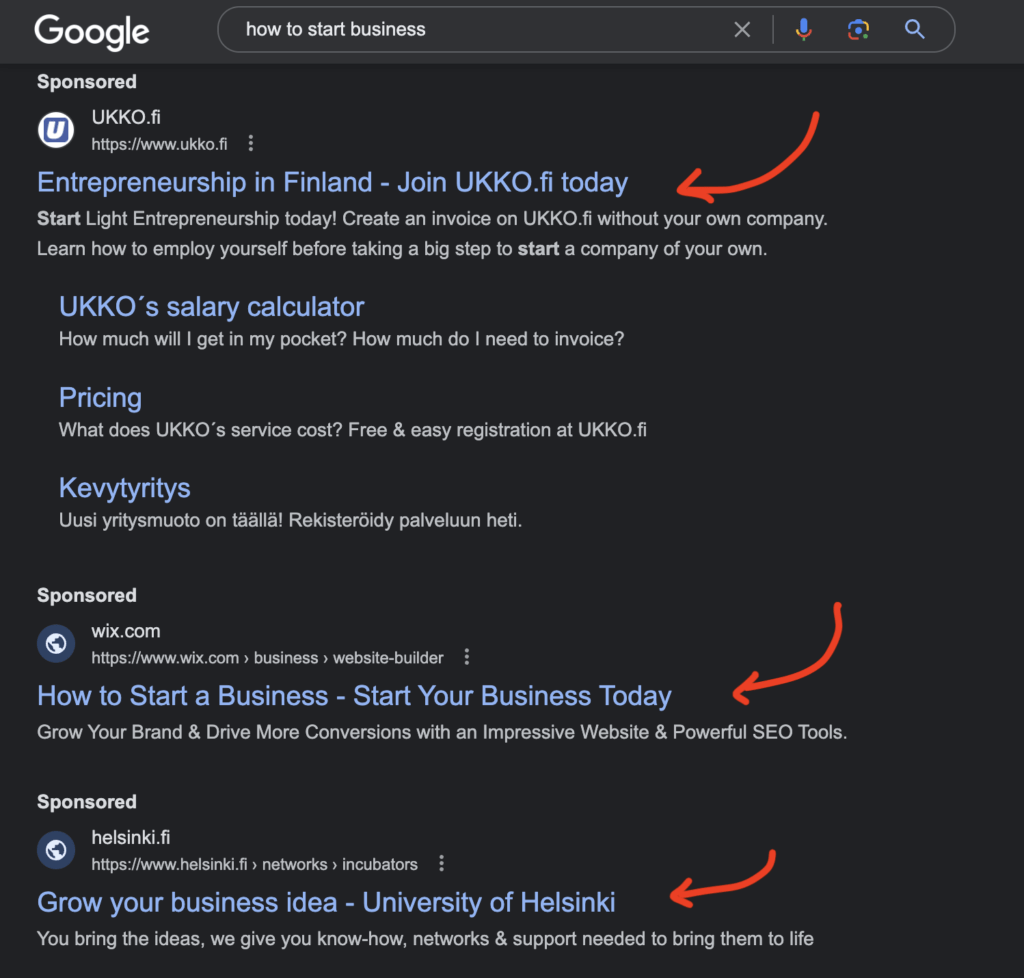
Your blog post topic is good if there are:
- Few ads
- Few/no posts that directly solve the problem
- Forum posts (these are Google’s last resort)
- Other small “one person” sites on the search results
Also, to get an idea of how many blogs you are competing against, you can type “allintitle:” in front of your search phrase.

This operator basically filters out all the pages that don’t have the exact words in (order doesn’t matter) in the title.
If the number of results is greater than 1,000, your topic might be way too competitive.
I always go for search phrases that have less than 1,000 competing pages.
By the way, make sure to use the “allintitle:” operator right.
Filter out all the useless words from your search phrase that don’t affect the intent of the search.
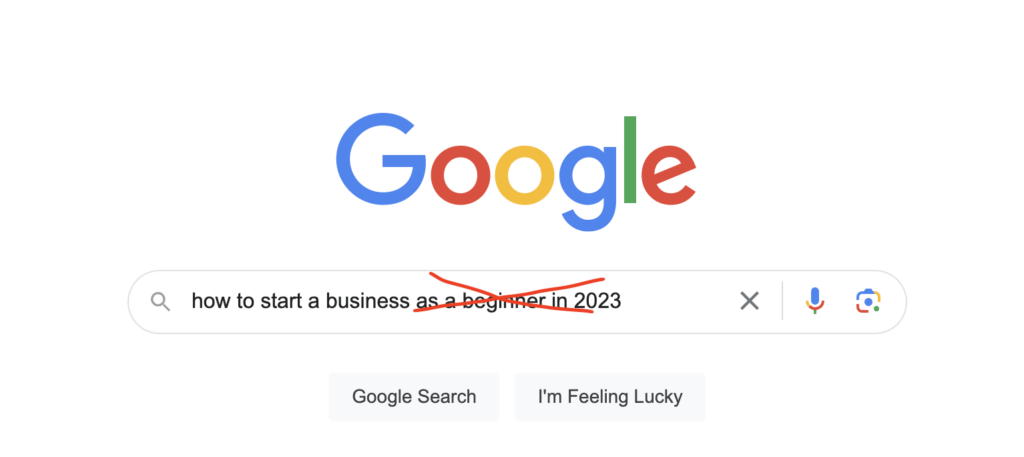
For example: “How to Start a Business as a Beginner in 2023” is exactly the same as “How to Start Business”.

So if you use the “allintitle:” trick, simplify your keyphrases to only contain the words that are important.
So this is how you make sure there’s not too much competition for your topic.
#4 Match Search Intent
Even if your topic seems like a good topic to write about, you still need to do one more thing.
Make sure to match the search intent.
In other words, make sure that you’re addressing the right issues.
Consider a search query like “Black shoes”. What does someone who’s searching for this want to see?
A Wikipedia page for what are black shoes?
Nope.
They are probably looking for product pages or reviews of black shoes to buy.
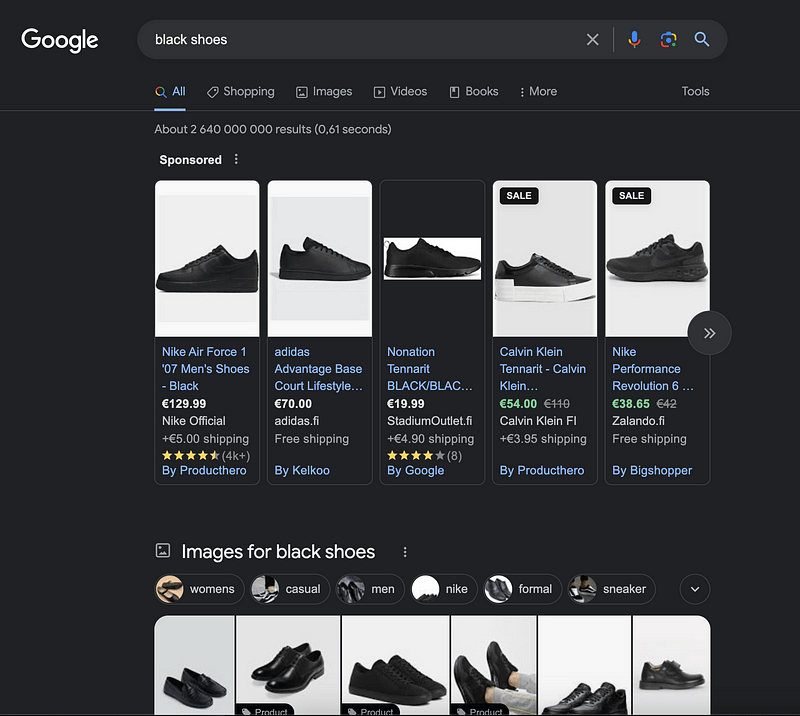
By doing a Google search for “Black shoes”, you can tell that Google agrees. They’re showing product pages for ordering black shoes.
This is what matching search intent means. Use Google search results to understand what people are looking for.
Also, another part of understanding the search intent is to write a post where a blog post is a great fit.
To validate this, Google your topic once more.
If there are lots of images, videos, or other non-blog post results, that might be enough to tell that a blog post is not a great fit for the searcher.
For example, I love to use the shoelace example on this one. Consider a search like “How to tie shoelaces”.
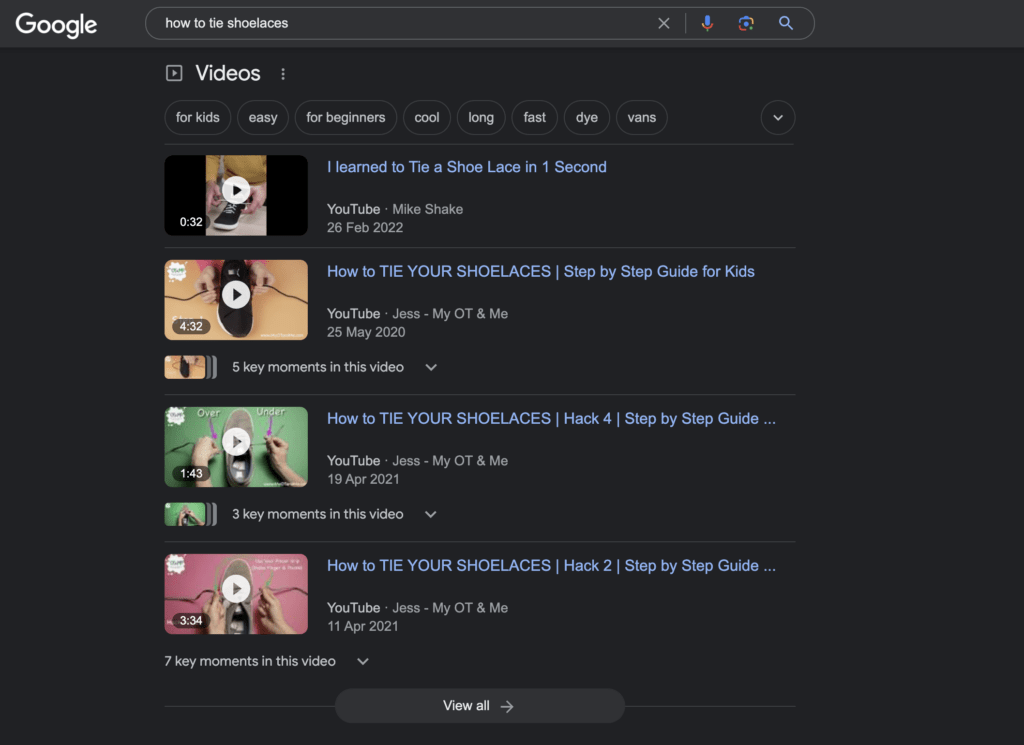
When Googling this, you mostly get videos or images in the search results.
Google has determined that someone who is looking for “How to tie shoelaces” is probably interested in a visual guide rather than an impractical explanation.
The takeaway: If your topic has lots of images or videos at the top of the search results, you might not rank high with a blog post, no matter how good a post you write.
#5 Avoid Paralysis by Analysis
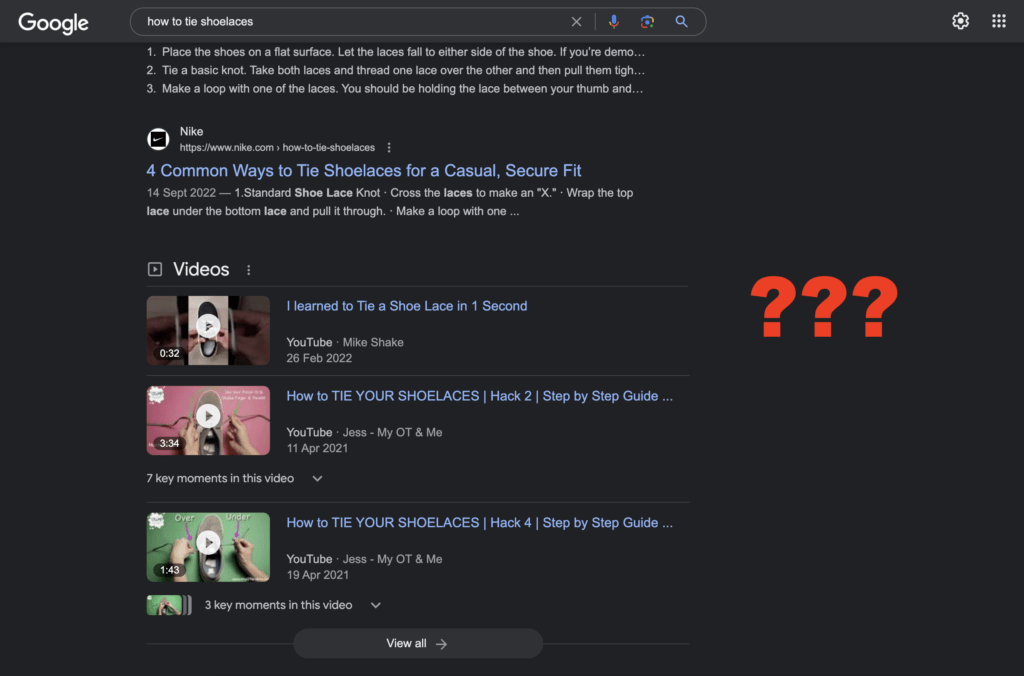
I know there’s a lot going on and you learned lots of new things when it comes to researching blog post topics.
While researching topics is important, I want you to promise one thing: Don’t get paralyzed by the analysis.
In other words, don’t get stuck in the research phase. Only spend 5–15 minutes and then start writing.
You will never be 100% sure of a blog post doing well anyways.
It’s enough to just quickly use the above strategies and some common sense to determine if a topic is worth writing about.
The more you do this, the better hunch you develop.
For example, after writing more than 1,000 posts, I sometimes don’t even need to do the research because I can predict what the search results look like.
But I’ve also got to admit that I still sometimes get stuck overanalyzing the competition.
Now that you understand how to quickly research blog post topics, it’s time to start writing!
How to Write Posts That Rank
Writing a blog post that ranks high needs to solve a problem for the searchers.
Read also: How Google Ranking Algorithm Works!
And not only that, but the post needs to be the best resource on the internet.

This is a step-by-step breakdown of how you can easily do it!
#1 Write the Best Posts Only
Search engines want to suggest the best solutions to the searchers’ problems.
If your blog post is not the most comprehensive and well-thought post about the topic, it won’t rank high.
To beat the best, you need to be the best. That’s just the name of the game.
Basically, you need to write the longest and the most informative/actionable post about your topic.
By the way, you don’t need to be familiar with the topic to write about it. There is a ton of knowledge upon which you can build. Just use Google and do the research.

But you need to be useful. More useful than anyone else.
For example, if you write a blog post on “How to choose a bike”, don’t just tell them to go to a store and buy a bike.
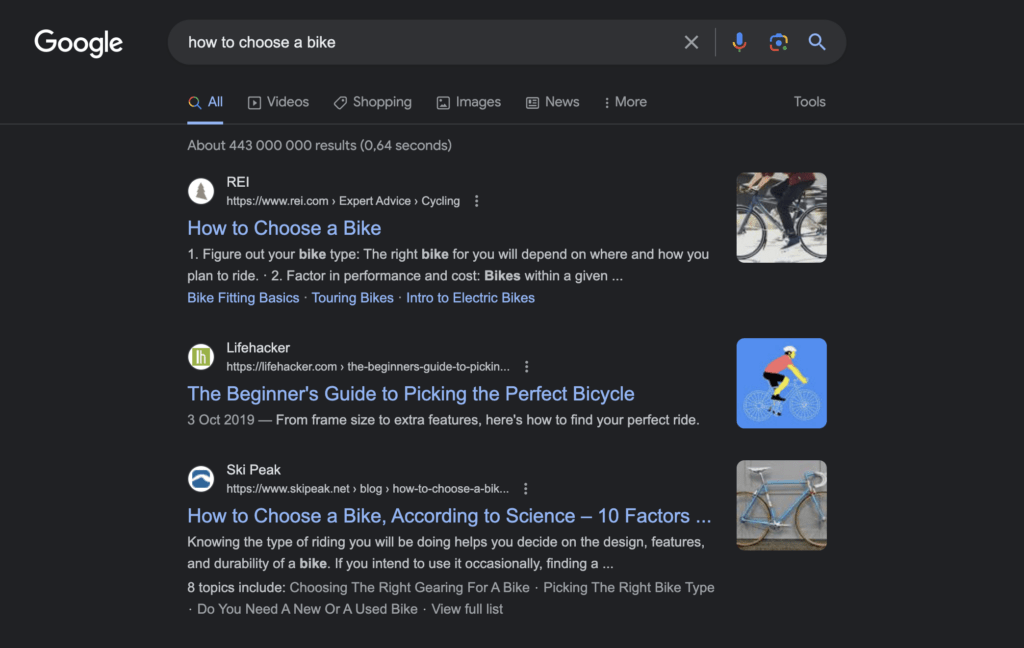
Instead, discuss the different ground types and the associated bikes.
Consider all skill levels.
Consider all budgets.
Dive deep into the details of the manufacturers.
You’ll be surprised by how comprehensive and detailed content you can produce once you put in the effort.
And no, you don’t need to be a good writer either. As long as your information is there in an enjoyable format, that’s all that matters. Your job is to do the research so that your readers don’t have to.
You’ll be surprised how low the average post quality really is.
By a quick look, many posts seem competitive and high in detail.
But once you dig deeper, many times you’ll find out the posts are fluff that is meant to rank but not to solve actual problems.
#2 Format Post Nicely
Format your posts nicely. Make sure that busy visitors can quickly go through your content without having to read every word.
Search engines analyze the performance of your pages.
If your post is a wall of text and people bounce off quickly, search engines can easily tell that the post is something they should no longer recommend.

So make sure to optimize the reading experience.
Take into account everyone, that is, visitors who are:
- In a hurry
- Looking for in-depth guides
- Listening to your posts with screen readers
To make the posts good for the busy, format them with headings, subheadings, bulleted lists, images, and such.
This way the post is easy to skim through without having to read through every single word.

Think about it. If you’re looking for particular information, you don’t want to read a 5,000-word post from A to Z. Instead, you want to directly scroll to the important part.
By formatting your post with headings, subheadings, and images, you give clear guidance through your post.
But remember that this doesn’t mean your post should be short.
As we discussed earlier, the more informative the post, the better chances you have for ranking higher on search results.
Lastly, you should take into account those who are listening to your posts as audio.
In other words, you need to add alt texts to your images. This way the listeners know what the image represents.
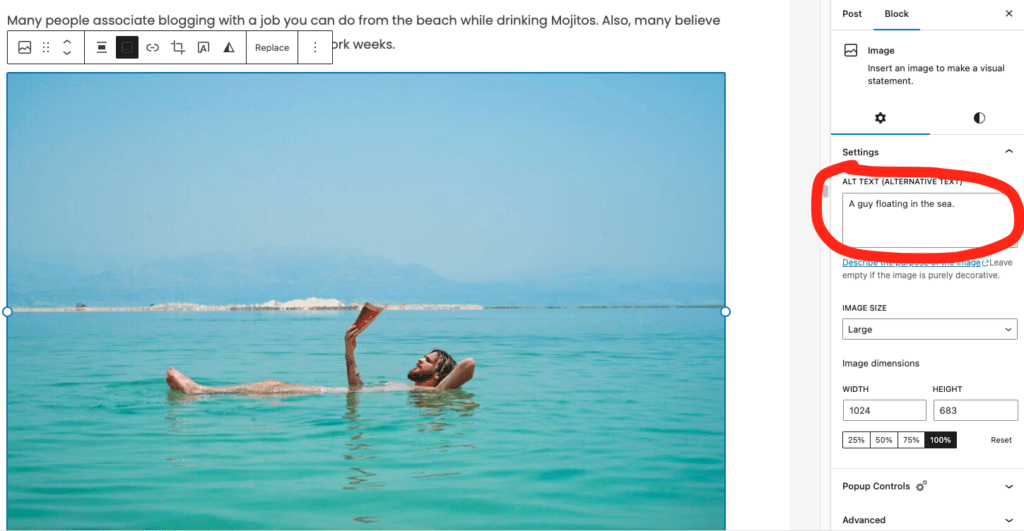
By the way, you don’t need to specify the alt image text if the image is just a decoration and doesn’t add value to the reader.
🤫 I’ve got to admit I’ve forgotten alt texts way too many times. Shame on me!
How Long Does It Take to Rank
Now that you know how to research and write posts that rank high on search results, your logical next question probably is:
How long does it take to rank high?
If you’ve just published a couple of gems and get no traffic to those, don’t worry.
It can take months.
Here you can see one of my articles growing really slowly on my niche site. It took almost a year to reach the “full potential”.
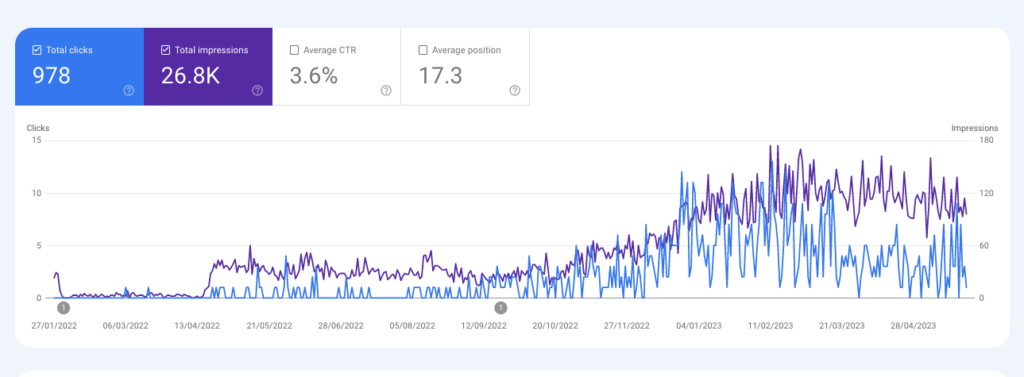
This post ranks #1 on a very specific search phrase that doesn’t even have a ton of competition. Yet it took a year to get there… So be patient!
Find out more examples of how long it can really take for a blog post to rank here.
Ranking high on search engines takes time.
It can easily take 6–12 months before your post starts doing well on search results.
So don’t be frustrated if you see no progress in your blog for a couple of months after publishing your articles.
Wrapping Up
And that’s a wrap!
To put it short, every blog post needs to meet the demand.
In other words, your posts should solve niche-specific problems that people are looking for on the internet.
Don’t write about topics that you want. Instead, write about topics people are searching for.
And not only that, but you also need to write the best post about the topic. Otherwise, Google and other search engines won’t recommend
It takes practice to learn how to do research, write efficiently and effectively. Also, it takes time to see results, but at the end of the day, it’s all worth it!
Happy writing!
